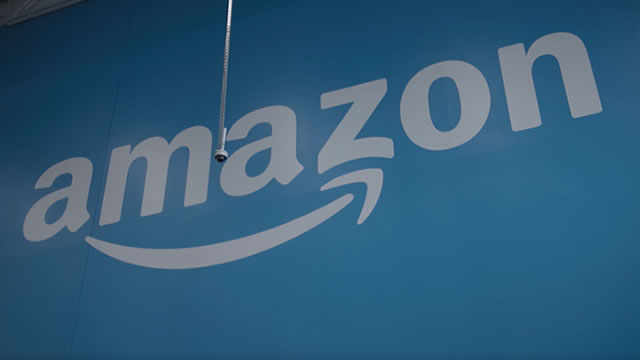Former Magellan Fund manager Peter Lynch has always promoted buying what you know. Lynch achieved tremendous success during his investing career doing just that.
His advice is one of the reasons I own shares of Amazon (AMZN -2.83%). Our household receives products ordered from Amazon multiple times each week. I read books on my Kindle device every day. Many of the websites I frequent are hosted on Amazon Web Services (AWS). And Alexa, Amazon’s virtual assistant, is practically a member of the family.
I think Amazon is a great addition to nearly any investor’s portfolio. But could buying Amazon stock today set you up for life?
The past looks promising
If we were asking whether buying Amazon stock could have set you up for life in the past, the answer would be a resounding “yes.” Lynch wrote about “10-bagger” stocks that deliver 10x returns in his best-selling book One Up on Wall Street. Amazon makes such gains look puny. Since the company conducted its initial public offering (IPO) in May 1997, its share price has skyrocketed by more than 2,255x.
Let’s put that performance in terms of dollars to help understand just how impressive it is. If you invested $10,000 in Amazon after its shares began trading publicly and never sold, your investment would be worth roughly $22.5 million today. I’d call that being set up for life.
However, you wouldn’t have had to invest in Amazon at the very beginning to be a big winner. What if you didn’t buy $10,000 of the company’s shares until February 2005, when Amazon was already successful and sported a market cap of over $14 billion? You’d still be a millionaire today, with your position growing in value to around $1.25 million.
Granted, holding on to those Amazon shares would have been hard to do for most of us. The stock experienced multiple massive drawdowns along the way. Some of the tremendous gains years ago could have tempted many investors to sell and take profits. But buying and holding Amazon stock in the past has definitely been a great way to amass a fortune.

AMZN data by YCharts
Too big, too late?
Does Amazon’s spectacular history mean the stock will deliver similar gains in the future? Of course not.
Anyone who invested in Amazon at its IPO was making a wager on an unproven company facing lots of competition in the e-commerce space. If you bought the stock in early 2005, AWS was still over a year away from being launched.
Amazon’s market cap tops $2.3 trillion today. The company dominates the e-commerce market. AWS claims the largest market share in the cloud services market. Although Amazon still subscribes to the “it’s day one” philosophy instilled by founder Jeff Bezos, the truth is that it’s no longer day one for the company.
There’s a strong case to be made that it’s too late for Amazon to be an investment that will set you up for life because the company is simply too big. It’s harder for a company as large as Amazon to identify growth opportunities that will move the needle significantly.
Two arguments in favor of Amazon
However, I wouldn’t rule out the possibility that buying Amazon stock now might set you up for life. Two arguments especially work in Amazon’s favor, in my opinion.
First, AWS still has tremendous growth potential. Artificial intelligence, especially generative AI, continues to provide a massive tailwind for the business. Amazon CEO Andy Jassy believes that global IT spending will shift from around 85% on-premises today to roughly that percentage in the cloud within the next 10 to 15 years. AWS stands to be a primary beneficiary of this trend.
Second, between 80% and 85% of global retail sales are still made in brick-and-mortar stores. Jassy predicts this dynamic will flip, with e-commerce making up the lion’s share of the retail market in the next 10 to 20 years. If he’s right, Amazon’s core e-commerce business should grow significantly.
Even with these two opportunities, investing $10,000 in Amazon today might not set you up for life. However, I think buying the stock could still make you a lot of money over the long term.
Financial Market Newsflash
No financial news published today. Check back later.










